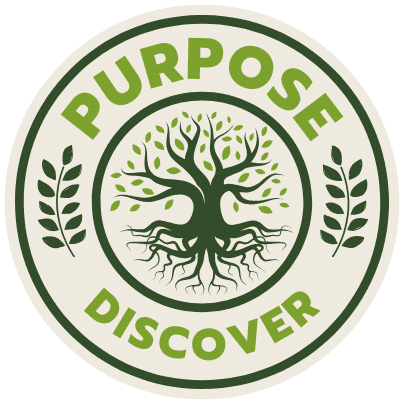There’s something profoundly humbling about sitting across from someone who’s lived through storms you only read about in books. Their eyes carry stories, some bitter, some sweet, but all vivid and raw. When you listen—not just hear, but truly listen—you tap into a reservoir far richer than your own. Life suddenly becomes a layered tapestry instead of a bland background.
You might think you’re the main character in your story, but in truth, you’re part of a sprawling ensemble cast, each with lessons more valuable than any TED Talk or self-help manual could pack. Learning from others isn’t just an option; it’s the scaffolding upon which we build meaning.
The Power of Other People’s Stories
Ever noticed how a stranger’s offhand comment can stick with you? Like a seed that grows when you least expect it. Stories have a weird way of burrowing under your skin. They fuse empathy with insight. When someone shares their experiences—joys, mistakes, failures—they’re essentially handing you a cheat sheet for life’s complexity. It’s worth more than gold but costs nothing but your attention to receive.
We often underestimate how much our perspective is confined by our own experience bubble. Why reinvent the wheel if your neighbor already hammered out the dents? Learning from others widens our heartbeat, stretches our patience, and sharpens our instincts. You start to see patterns, recurring human struggles that make your problems feel less isolating.
Why Isolation Shrinks Meaning
Meaning shrinks when you isolate yourself. Ask any philosopher or plain ol’ human who’s ever felt that gnawing emptiness after a rough patch. Alone is the loneliest word for a reason. When you’re bottled up in your own mind, meaning starts to feel like an abstract idea, something you chase but never quite catch.
Sharing experiences spits reality in the face of solipsism. The simple act of exchanging stories recalibrates us from imagining our struggles as singular to recognizing them as shared. Suddenly, your suffering has witnesses, and your triumphs have cheerleaders.
How Learning from Others Expands Your Moral Compass
Think about this: your ethics, your beliefs, your gut feelings about right and wrong? They didn’t just pop up fully formed. A ton of that comes from watching and absorbing the lives around you. Others serve as mirrors but also as windows.
When you engage with different worldviews, especially ones steeped in cultures or circumstances unlike your own, something beautiful happens. Your moral compass expands. You understand resilience in a deeply personal way, not just a textbook definition. You realize that what you thought was an absolute might bend, twist, or break under different lights.
The Brain’s Love Affair with Stories and People
Science backs this up: the brain is wired for social learning. Mirror neurons fire when we observe others, almost as if we’re living their experiences ourselves. This isn’t just “feel-good” psychology mumbo jumbo; it’s neurological fact. When you witness someone’s joy, fear, or courage, those emotional sparks ignite inside you.
Our neural pathways get rewired by every meaningful interaction. That’s why mentorship works. That’s why apprenticeships persisted for centuries. Learning from others is an ancient, tried-and-true shortcut, allowing us to sidestep a lot of trial-and-error agony.
What Happens When You Stop Learning from People?
Life’s meaning can feel stunted, like leaves deprived of sunlight. Without fresh experiences, perspectives, and narratives, your internal world calcifies. You start assuming you know all there is to know, building a fortress of assumptions instead of bridges.
I’m guilty of this too—trapping myself in routines and only hanging out with people who think like me. It’s comfy but limiting. That quiet circle eventually becomes a cage.
Lessons Learned at the Cocktail Party of Life 🍸
People often show their truest selves in unexpected places—a bar, a park bench, a crowded subway car. Stories pop up in these mundane arenas. Here’s where you catch snippets of wisdom that are unrefined but pure. I once listened to a cab driver rant about his missed opportunities, and that insight shaped how I approached risk-taking for weeks.
Learning isn’t confined to polished presentations or formal education. It’s scattered in passing conversations, forgotten advice, and those weird, tangential anecdotes that at first seem useless.
The Role of Vulnerability in Meaningful Learning
Nobody wants to appear weak, but vulnerability is the currency of genuine learning. When people share their failures, embarrassments, or insecurities, they create fertile ground for connection. Listening to these moments can shatter your preconceived notions about success, perfection, and worth.
And once you’ve tasted what it’s like to relate authentically—beyond the curated social facades—you start craving deeper relationships. These connections feed your soul, weaving meaning into everyday moments.
A Personal Story: How a Stranger Reshaped My Perspective
Years ago, I met an elderly woman on a train who suffered a stroke yet had an infectious zest for life. She told me about rediscovering joy after loss, how the small acts—watching birds, baking bread—became monumental celebrations.
That conversation hit me like a lightning bolt. I realized that searching for some grand life purpose isn’t always necessary. Instead, meaning often grows quietly from the soil of shared human experience. It’s not a treasure buried in some faraway cave but a garden tended together.
How You Can Start Learning More Deeply Today
If you want to enrich your life’s meaning, it’s not about gathering tons of new facts. It’s about conversations—real, messy, sometimes uncomfortable. Here are a few ideas that don’t require a lecture hall or expensive seminar:
🌟 Seek out people with different life experiences than your own. It’s uncomfortable but eye-opening.
🌟 Ask thoughtful questions, then shut up and listen. Seriously, you’ll be amazed what people will tell you if they feel heard.
🌟 Join local groups or community events. Shared activities, no matter how small, foster unexpected learning.
🌟 Read memoirs, listen to podcasts, attend storytelling events. Stories are everywhere.
🌟 Reflect on what you learn, then try to pass it forward. Teaching or sharing insights reinforces meaning.
Why This Matters in a World That’s Turning Inward
As technology seduces us into echo chambers and curated feeds, there’s a growing risk of narrowing our worldview. We replace serendipitous encounters with algorithmic predictability. The depth and unpredictability of human experience fade into wallpaper.
Counteracting that requires conscious effort. Choosing to learn from others—deliberately, patiently, passionately—is a rebellion against isolation and meaninglessness.
To really dig into what makes your own purpose tick, explore deeper into the vast well of shared humanity. There’s a great resource out there that delves into this beautifully—check out What Is Your Purpose for more inspiration.
Meaning isn’t found in isolation or endless scrolling through curated moments online. It’s born in the messy, unpredictable exchange of lives lived. So next time you cross paths with someone, lean in. There’s gold in their story waiting to change how you see the world—and more importantly, yourself.

